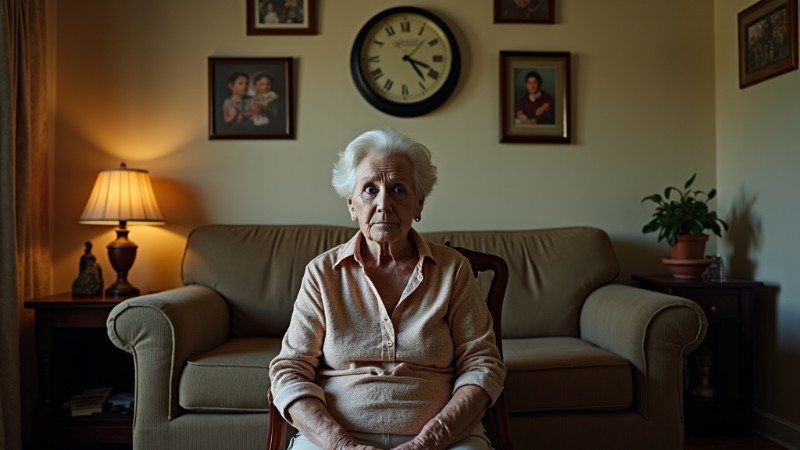A growing number of individuals are choosing to live independently in their later years, a trend that is reshaping how we approach aging. Known as solo agers, these individuals live without the support of a spouse or children, creating a unique set of challenges and opportunities. While aging alone can feel daunting, careful planning and thoughtful decisions can make this phase of life both secure and fulfilling.
This article outlines key strategies that solo agers can use to ensure they are well-prepared for the future, covering essential areas such as financial stability, healthcare, housing, legal matters, and social connections. By proactively addressing these aspects, solo agers can enjoy independence and a high quality of life for years to come.
Key Takeaways
Aging well as a solo ager requires careful planning in areas such as financial stability, healthcare, housing, legal matters, and social connections.
- Develop a solid financial plan that includes retirement accounts, health savings accounts, annuities, and additional income sources to ensure long-term stability and security.
- Explore various housing options, including aging in place with modifications, senior housing communities, and intergenerational living arrangements, to create a safe and supportive environment.
- Build a network of friends, neighbors, and community members through social activities, support groups, and online platforms to maintain emotional well-being and reduce feelings of isolation.
Financial planning: A foundation for independence
A solid financial plan is crucial for anyone, but especially for solo agers. Without a spouse or children to rely on, ensuring financial independence in later years requires careful management of savings and investments. Solo agers must plan for future healthcare expenses, home modifications, and potential personal care needs.
Beyond retirement accounts like 401(k)s and IRAs, it’s important to explore other options such as health savings accounts (HSAs) or annuities. Supplementing retirement funds with additional income sources like part-time work, passive income, or rental properties can further safeguard financial security. Working with a financial advisor can help solo agers create a well-rounded strategy that balances growth with long-term stability.
When preparing for the future, long-term care is one area that should never be overlooked. While solo agers may not have family members to care for them in their later years, there are numerous options available, including long-term care insurance, which can help cover the costs of in-home care or assisted living. Additionally, creating a specific savings fund for healthcare can provide peace of mind.
Respite care services are also an important consideration, offering temporary relief for caregivers or assistance when a solo ager requires recovery time. This type of care is especially valuable for solo agers without family members to step in during times of illness or injury. A combination of these options ensures that care needs are met without compromising independence.
Building a safe and supportive environment
Housing options for solo agers: The decision about where to live is one of the most important choices for solo agers. Many opt for aging in place, which allows them to remain in their homes with necessary modifications. Simple changes like adding grab bars, wider doorways, or non-slip flooring can make a significant difference, improving both safety and accessibility.
For others, a senior housing community may be the best fit. Options such as assisted living facilities or continuing care retirement communities (CCRCs) provide the flexibility of aging in place while offering various levels of medical and personal care. These communities also foster social engagement, helping reduce the isolation often associated with aging alone.
Another emerging trend is intergenerational living, where solo agers share their homes with younger tenants in exchange for companionship and assistance with daily tasks. This approach not only provides help with daily chores but also fosters emotional connections and a sense of community.
Healthcare and long-term care: Healthcare is a key concern for solo agers. Without family to help coordinate care, it’s essential to have a robust healthcare plan in place. This should include regular medical checkups, medication management, and access to emergency services. Programs like Life Plan at Home (LPAH) can help solo agers access the care they need while remaining at home.
Having a healthcare advocate is also important. This person—whether a trusted friend, neighbor, or professional—can assist with managing medical appointments, ensuring that health needs are being met, and making decisions in case of emergencies. Additionally, solo agers should consider long-term care insurance to help cover the costs of home healthcare or nursing facilities as needs evolve.
Building social and emotional resilience
Emotional well-being is just as important as physical health for solo agers. Without the natural social support of family, it becomes crucial to build a network of friends, neighbors, and community members. Solo agers can do this by participating in local senior programs, joining clubs, or volunteering for causes they care about. Social activities provide both mental stimulation and emotional support.
Support groups are an excellent way for solo agers to connect with others who are navigating similar challenges. These groups allow individuals to share experiences, offer advice, and support one another in facing the emotional ups and downs of aging alone. Whether focused on specific health concerns or general life adjustments, support groups create a sense of community and alleviate the feelings of isolation that often come with aging solo.
In addition to face-to-face support, virtual communities offer another way to stay connected. Online platforms, such as Facebook groups for older adults, provide a space to share information, ask questions, and build friendships from the comfort of home.
Maintaining an active lifestyle is vital for both physical and mental health. Solo agers should seek out activities that keep them engaged and help them build relationships. Exercise classes, art workshops, book clubs, or gardening groups are all ways to stay physically fit while cultivating meaningful social connections.
Staying mentally stimulated is just as important. Learning new skills, taking up creative hobbies, or traveling to new destinations can provide a sense of accomplishment and purpose. Engaging in these activities not only supports emotional resilience but also fosters a sense of fulfillment, which is key to aging independently.
Legal and estate planning: Securing your future
For solo agers, having a solid legal plan is critical. Powers of attorney for healthcare and financial matters are essential for ensuring that trusted individuals can make decisions on their behalf if needed. These legal documents provide peace of mind, knowing that if a health crisis arises, the solo ager’s wishes will be honored.
In addition to powers of attorney, solo agers should draft a will or trust to clarify how their assets will be distributed upon death. Estate planning ensures that there are no disputes over the distribution of assets and that the solo ager’s wishes are carried out smoothly.
Healthcare directives are another key component of legal planning. Living wills outline preferences for medical treatment in the event that the individual is unable to communicate, ensuring that end-of-life care is in line with their values and wishes.
Preparing for End-of-Life Decisions
While discussing end-of-life matters can be uncomfortable, it’s an important part of preparing for a secure future as a solo ager. Documenting funeral arrangements, organ donation preferences, and other legacy wishes can ease the burden on friends or advisors who may be called upon to make these decisions.
Appointing a healthcare surrogate or professional fiduciary to handle any remaining matters is another way to ensure that a solo ager’s plans are followed. Additionally, leaving a legacy through charitable donations or special bequests can be an important way to reflect one’s values and make a lasting impact.
Adapting to the challenges of aging alone
Solo aging may present unique challenges, but with careful planning and the right support, it’s possible to navigate this phase of life with confidence. Financial preparedness, appropriate housing, healthcare, social connections, and legal protections all contribute to ensuring that solo agers can enjoy a secure and fulfilling future.
Additionally, these practical considerations, emotional and social well-being is vital for thriving as a solo ager. Support groups, respite care services, and social networks can provide invaluable support, reducing the sense of isolation and fostering connections with others. By building a strong foundation for the future, solo agers can live independently while maintaining a rich, meaningful life.















